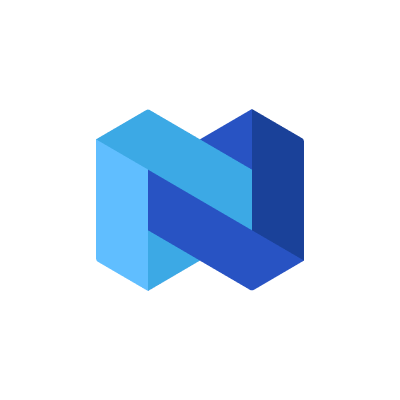With the introduction of Proof-of-Stake (PoS) blockchains like Ethereum, Polygon, and Solana, staking has become a viable way to generate wealth via transaction verification–so much so that crypto staking has already ballooned into a massive industry with a market cap of over $248 billion in 2024.
With that in mind, here’s our guide to the top 10 crypto staking platforms available to retail users and enterprises in 2024.
Table of Contents
- How to Choose the Best Staking Platform
- Available Cryptocurrencies
- Rate of Return
- Custody
- Track Record
- User-friendliness
- Top 10 Crypto Staking Platforms
- Coinbase
- Kucoin
- Binance.us
- Crypto.com
- Allnodes
- Nexo
- Lido
- Stakely
- Rocket Pool
- Top 10 Crypto Staking Platforms
Key Takeaways
- Earn from Coinbase is one of the safest options for crypto holders who want a trusted, compliant, and feature-packed platform based in the United States.
- Lido and Rocket Pool are solid options for more advanced users who desire decentralized protocols supporting non-custodial staking.
- Staking platforms outside the US face an uncertain future in 2024 due to increased regulatory pressures.
How to Choose the Best Staking Platform
With dozens of staking platforms and apps on the market, choosing the right option can be hard, especially if you are a newcomer. You may have to look at various factors to identify the best staking platform for your needs and circumstances. As part of our in-depth review process, we consider the following factors:
Available Cryptocurrencies
While some platforms offer only a single crypto for staking, others may have 50+ cryptocurrencies. More options can be advantageous if you want a diverse staking portfolio, combining established tokens and popular coins. However, this may not be decisive if you are only interested in staking ETH.
Rate of Return
The rewards you get from staking are the Annual Percentage Yield (APY). A higher APY is desirable because you can earn more through staking. Each token or blockchain network sets this percentage, but due to different commission rates, it can vary for the same token across different staking platforms.
Custody
There are two approaches to staking based on the custody of staked tokens. In custodial staking, the platform will stake your coins on your behalf. In non-custodial staking, you have full control of the coins. Custodial staking is seen as more beginner-friendly and comes with various value-added features. Meanwhile, non-custodial staking is more appropriate for advanced users.
Track Record
Given the risk of hacks and other cyber attacks in the crypto world, it is always a good idea to check the security track record of each platform before deciding which to use. This is particularly valid for custodial platforms, where you must rely on the service provider to handle security matters.
User-friendliness
Does the platform have a user-friendly web interface? Is it easy to find important information related to the staking service? Is the onboarding process simple and painless? These are all critical factors, especially if you are new to staking and crypto.
Restricted jurisdictions
Due to local laws and financial regulations, cryptocurrency services are not available/partially restricted in many countries around the globe. Even in the United States, the availability of staking services will vary from state to state. Always check if the platform offers staking services in your jurisdiction.
 Earn on Coinbase
Earn on Coinbase
Launched in 2012, Coinbase is a US-based, trusted platform that makes engaging with crypto easy for people and institutions. The company is also one of the only crypto exchanges publicly traded on the US stock market (Nasdaq) and has audited quarterly financial statements. Coinbase’s staking service is called Earn on Coinbase, and it supports several established popular coins like ETH, SOL, DOT, and ADA.
Pros
- Trusted company based in the United States
- Excellent security track record with no major hacks
- Staking available for multiple PoS tokens
- User-friendly interface and excellent accessibility
Cons
- Has fewer tokens compared to its rivals
- Service not available in all US states
Why we like Earn on Coinbase
Earn on Coinbase is a beginner-friendly staking platform prioritizing accessibility, safety, and compliance. It is also the largest US-based platform, inspiring much trust. In addition to its staking service on the Coinbase.com app, Coinbase also offers competitive staking offerings for non-custodial and institutional customers.
 KuCoin
KuCoin
KuCoin is a popular cryptocurrency exchange based in Hong Kong. Although its services are available across 200 nations, KuCoin’s services are highly restricted in the United States. Security is a major issue since the exchange has faced multiple major hacks since 2020. Additionally, KuCoin offers staking services on 40+ coins at relatively low fees.
Pros
- Offers a diverse array of cryptocurrencies
- Has good APY on major tokens like ETH
- Popular platform with a huge user base
Cons
- Is not regulated by any major financial authority
- Has been subject to multiple hacks
- Only limited access to services in the US
Why we like KuCoin
Despite its poor security track record, KuCoin remains a relatively decent staking option for non-US customers due to its wide range of supported tokens, healthy APY, and low fees.
 Binance.US
Binance.US
Binance.US is a subsidiary of Binance.com, the world’s largest cryptocurrency exchange. The US version of Binance focuses strictly on the American market, and unlike its parent entity, Binance.US is a separate exchange that offers a smaller selection of services and cryptocurrencies. Due to ongoing legal and regulatory challenges, Binance.US has been forced to reduce its services and features.
Pros
- Supports 17 major cryptocurrencies
- Offers many other crypto exchange features
- Available in 44 US states
Cons
- Under severe scrutiny from US regulators
- Has been hit by multiple successful hacks
- Has high staking fees
- No longer accepts US dollars
Why we like Binance.US
Despite all its legal woes in the US, Binance.US remains a popular staking platform due to its excellent user experience and a wide array of staking options.
 Crypto.com
Crypto.com
Crypto.com is a Singapore-based cryptocurrency exchange active since 2016. The company has over 80 million users worldwide. Due to regulatory reasons, its full array of services is unavailable in the US. However, you can use the mobile app to access features that include staking. It supports close to 20 tokens and promises healthy APY at reasonable fees.
Pros
- Supports staking on over 17 cryptocurrencies
- Has low trading fees
- User-friendly app interface
Cons
- High withdrawal fees
- Only the mobile app is available in the US
- Has suffered security breaches
- Advanced features are not available in the US
Why we like Crypto.com
With full support for USD transactions, low trading fees, and an excellent mobile app, Crypto.com is a beginner-friendly platform for staking on major cryptocurrencies.
 Allnodes
Allnodes
Allnodes is a US-based staking infrastructure provider active since 2017. The company offers non-custodial staking and node hosting services to individuals and enterprises. As of 2024, Allnodes supports staking on over 57 tokens and protocols. Users can pick from various flexible subscription options to stake through validator nodes.
Pros
- Supports 50+ cryptocurrencies for staking
- Affordable subscription model for validator node hosting
- Trusted US-based company
Cons
- Not suitable for beginners
- Has no trading features
- Staking requirements are high for some tokens
Why we like Allnodes
Allnodes is a highly competent and responsive service aimed at intermediate users and enterprises seeking a non-custodial platform to host their own nodes for staking.
 Nexo
Nexo
Originally from Sofia, Bulgaria, Nexo also has offices in London and Switzerland. This is a centralized crypto platform that focuses heavily on lending and borrowing. In late 2022, the platform added an Ethereum staking service using the NETH liquid staking token. However, the staking service is not available in the US.
Pros
- User-friendly web interface and mobile app
- A wide array of crypto lending products
- Supports liquid staking of ETH with high APY
Cons
- Most services are not available in the US
- Only supports ETH staking
- Loyalty benefits require the buy-in of the NEXO token
Why we like Nexo
Although its main focus is crypto lending, Nexo has a reasonably well-designed ETH liquid staking option for non-US customers.
 Lido
Lido
Lido pioneered the concept of liquid staking in 2020 when ETH was still transitioning from Proof of Work to Proof of Stake. The decentralized protocol unlocks staking for tokens like ETH, MATIC, and DOT. It offers a streamlined user interface and excellent security.
Pros
- Intuitive and streamlined staking process
- Has a low minimum requirement for ETH staking
- Has lower staking fees than some rivals
Cons
- Only supports a handful of tokens
- Does not offer any other services
- No option to invest using cash
Why we like Lido
As Ethereum’s most popular liquid staking protocol, Lido is a trusted protocol that offers strong APY and low fees.
 Stakely
Stakely
Stakely is a lesser-known non-custodial staking services provider with offices in the UK and Spain. The company has been active since November 2021. It claims to have 67,000 users with a total value of $1.3 billion across 38 blockchain networks. Stakely offers its services to businesses and individuals and boasts a low fee of just 5% on staking rewards.
Pros
- Supports over 40 cryptocurrencies
- No minimum limit on staking amounts
- Offers insurance against losses
Cons
- Small company with a limited online presence
- No trading or exchange services
- No information about US services
Why we like Stakely
Although it has a relatively weak online presence, Stakely seems to be a reliable staking-as-a-service provider with access to 40 different tokens and very low service charges.
 Rocket Pool
Rocket Pool
Rocket Pool is a DAO protocol like Lido, designed to democratize ETH staking. The protocol is focused solely on ETH and allows you to participate in staking using any amount. The highly decentralized platform is easy to use and offers non-custodial staking services with no lock-up periods.
Pros
- Fully decentralized non-custodial staking protocol
- Also offers ETH node staking for higher APY
- A highly respected and trusted protocol
Cons
- Only supports ETH staking
- Low APY compared to the competition
- May not be a good option for beginners
Why we like Rocket Pool
Rocket Pool is a highly acclaimed non-custodial staking option for more advanced users interested in staking ETH.

Investor’s Takeaway
With over $90 billion staked, ETH continues to dominate the staking landscape in 2024. Other top options include Solana, Cardano, Avax, and Polygon. Binance, Coinbase, KuCoin, and Lido are the leading staking platforms in the global markets.
Staking remains one of the safest ways to earn in crypto and is now widely available through many platforms. For those sitting on crypto, staking rewards are an easy way to earn while holding.
Out of the leading crypto exchange platforms, Coinbase stands out due to its stellar security record, extensive availability in 46 states, and a solid array of staking options with good APYs.

